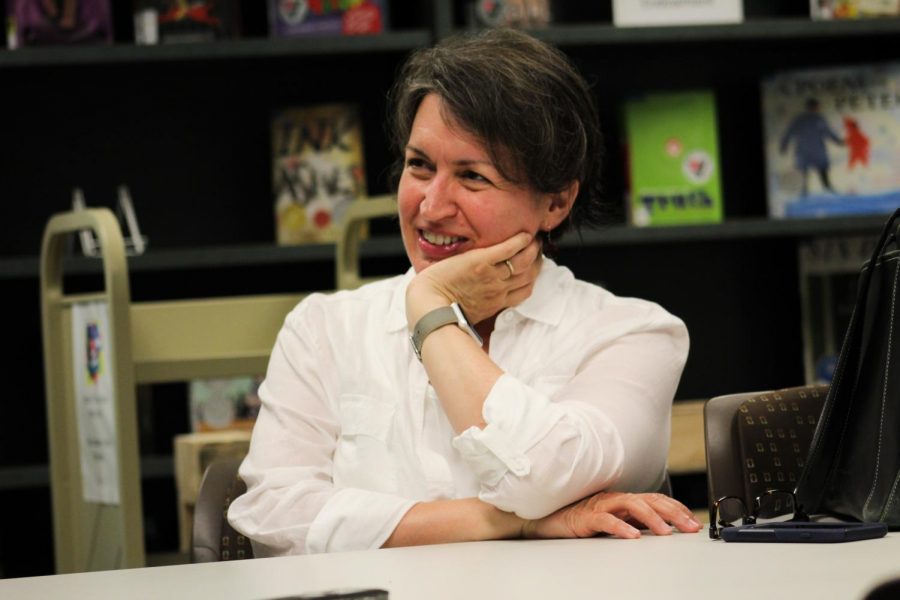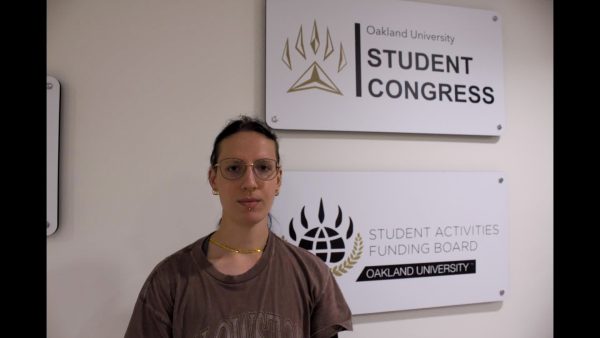OU English professor wins the Chapbook Contest for her memoir, “Ink”
English professor Kathleen Pfeiffer has been honored by the Michigan Writers Cooperative Press as a winner of their 2018 Chapbook Contest for her memoir, “Ink.”
The annual contest is intended to help writers with the publication of their first book in a literary genre. Although Pfeiffer submitted “Ink” to four or five chapbook contests, winning this particular one was especially significant to her.
“So much of my development has been nourished by small communities of writers in Michigan, so the idea that that’s the place where I would have a kind of debut piece published was really satisfying to me,” she said.
The personal connection she shares with the award is a sentiment that rings true in “Ink,” a memoir inspired by recollections of her past—namely, the loss of her 11-year-old brother, Gerry, to brain cancer.
“The opening chapter in ‘Ink’ is telling the story of my brother’s death, in the context of 40 years, literally, of just not talking about this,” Pfeiffer said. “To tell this story with all of those details… It took a lot of nerve for me to do that.”
This was not the first time Pfeiffer tried to tell Gerry’s story, though. She recalled conducting a bedside interview with her brother before one of his surgeries for her elementary school newspaper, ultimately to have the story rejected because it was “too upsetting” for children. Years later, she tried to tell the story again in an essay-length piece, only to have it again rejected, this time by literary journals.
“Once I had exhausted pretty much all of the venues that I thought were good fits for it, I had to pause and say, ‘OK, they don’t think it’s a good fit, so maybe it wants to be something else,’” Pfeiffer said.
After 40 years of “carrying him around in [her] imagination,” Pfeiffer was finally able to tell Gerry’s story, which she hopes will allow him to feel “represented in the world.”
A dance version of “Ink,” created by Oakland University dance professors Ali Woerner and Thayer Jonutz, has helped the story reach new audiences.
“My story now belongs to them as well because they have made it so personal through a kind of bodily expression that’s very different from verbal expression,” Pfeiffer said. “I feel so much more comfortable when I can collaborate and share my work, when I can diffuse the attention. It makes me really uncomfortable to have the attention on me, and this is a way of having the attention be on the story.”
She also hopes that “Ink” will resonate with her students, particularly those in her classes on biography and memoir as a literary form.
“I think one important to keep in mind about memoir specifically is that it’s possible to write and publish a memoir and still protect the privacy of your life, because memoir is not necessarily a tell-all,” Pfeiffer said. “You’re constructing a story out of the experience of your life, but you’re not pulling your skin back and exposing your soul to the world in this unmediated way.”
Though Pfeiffer is still promoting “Ink,” she already has plans for two future booklength publications—one about her childhood home and one about the “challenges [and] impossibility” of being a feminist and a stepmother.
“Let me tell you, from experience, being a stepmother is really hard—there are a bajillion great stories in that experience,” she said. “But when you’re a stepmother, you give up all individuality and independence and you have to lose yourself in this family unit, and you have to give up all of your personal preferences in order to accommodate other people, other people that you haven’t chosen to be in a relationship with. It’s not just your stepchild, but it’s your stepchild’s mother. And you have to organize your life around some other woman.
“To be a feminist is to celebrate female community. To be a stepmother is to be locked into combat with another woman. So, I want to try to figure out how to tell this story in a way that is accurate and meaningful, so that’s the big challenge.”






